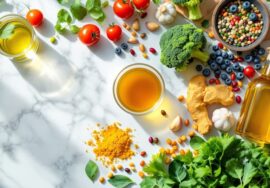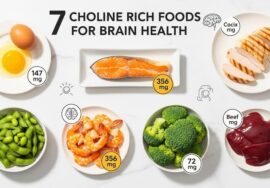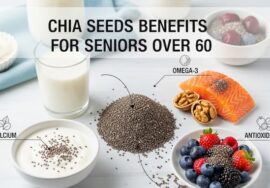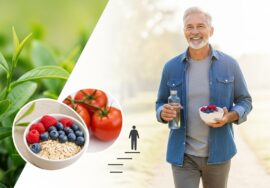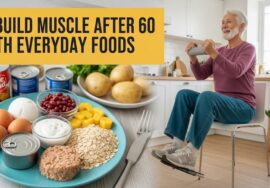For U.S. adults 50+: what’s known, what’s not, and how to use dandelion root safely—if you choose to.
Curious whether dandelion root belongs in a senior wellness routine—and if it has any role in cancer support? You’re not alone. This humble backyard plant shows up in teas, capsules, and tinctures, and it’s often pitched for digestion, fluid balance, or “detox.” For adults 60+, the real questions are simpler: What does the research actually say? Is it safe with my medicines? How would I use it without overdoing it?

This guide keeps things practical and evidence-aware. We’ll unpack what’s known (and not known) about dandelion root, including early lab and animal findings, small human studies on general wellness, and where claims leap beyond the data. We’ll also cover safety basics—common side effects, quality considerations, and drug–herb interactions that matter for seniors (think blood thinners, diuretics, diabetes meds, and allergies in the ragweed family).

A quick, important note on cancer: dandelion root is not a treatment and shouldn’t replace standard care. Any possible role—if at all—would be as a supportive add-on discussed with your oncology team. If you’re considering it, bring your care list (prescriptions, supplements, labs) to your next appointment and ask whether it fits your plan.
Read on for a clear look at benefits, risks, and smart ways to use (or skip) dandelion root after 60.
Table of Contents
- Key facts
- What research really says about “cancer support”
- Everyday reasons seniors use dandelion (what’s known)
- Safety first: who should pause or avoid
- How older adults typically take dandelion root
- Doctor-visit prompts
- Useful outbound resources
- Related inbound reading on KeepFitQuote
- Q&A
- Quick “how-to” (if cleared by your clinician)
- Bottom line for seniors
Key facts
- Cancer claims aren’t proven in people. Current findings come from cells/animals; no clinical trials show prevention or treatment in humans.
- Why some seniors try it: gentle fluid support (often leaf) and digestive/bile support (often root). Human data are limited.
- Caution flags: warfarin (vitamin-K–rich greens), lithium, quinolone antibiotics, bile-duct/gallbladder disease, Asteraceae (ragweed) allergy, and potassium concerns in kidney disease.
What research really says about “cancer support”
- Colorectal models: Dandelion root extract triggered cancer-cell death and slowed mouse tumor growth (PLOS ONE, 2016).
- Breast-cancer cell lines: With all-trans retinoic acid, extracts showed additive effects (Scientific Reports, 2023).
These are preclinical signals—interesting, not treatment guidance. Balanced summaries: NCCIH and Memorial Sloan Kettering (About Herbs). - NCCIH: https://www.nccih.nih.gov/health/dandelion
- MSK About Herbs: https://www.mskcc.org/cancer-care/integrative-medicine/herbs/dandelion
- PLOS ONE (2016): https://journals.plos.org/plosone/article?id=10.1371/journal.pone.0157824
- Sci Reports (2023): https://www.nature.com/articles/s41598-023-42177-z
Everyday reasons seniors use dandelion (what’s known)
1) Fluid balance
Traditional texts allow dandelion—especially leaf—for increased urination. Because leaf carries potassium, those with kidney disease or on diuretics need individualized advice.

2) Digestion & bile flow
European/Canadian references list root for dyspepsia and bile stimulation. A small after-meal cup is a common approach.

3) Nutrition from greens
Dandelion greens add fiber and minerals (notably potassium). Food benefits don’t map one-to-one to capsules.

Related reading on KeepFitQuote (inbound):
• Best Foods for Body Detox — https://keepfitquote.com/best-foods-for-body-detox-expert-guide-to-natural-internal-cleansing/
• What Foods Cause Inflammation? — https://keepfitquote.com/foods-that-cause-inflammation/
• Best Gentle Constipation Relief for Seniors — https://keepfitquote.com/best-gentle-constipation-relief-for-seniors/
Safety first: who should pause or avoid
- Warfarin (Coumadin®): Keep vitamin-K intake steady if you add greens; sudden changes can move your INR. Guidance: https://uihc.org/educational-resources/warfarin-your-diet-and-vitamin-k-foods
- Lithium: Diuretic-like effects can alter levels—get medical advice.
- Quinolone antibiotics (e.g., ciprofloxacin): Absorption may drop; spacing or avoidance may be needed.
- Bile-duct obstruction, cholangitis, gallstones: EMA advises against root here: https://www.ema.europa.eu/en/medicines/herbal/taraxaci-officinalis-radix
- Asteraceae allergy: Possible cross-reaction.
- Kidney disease / potassium limits: Leaf can add meaningful potassium—review with your clinician.
- U.S. supplements aren’t FDA-approved before sale; quality varies. Background: https://www.nccih.nih.gov/health/dandelion • Interactions: https://www.drugs.com/mtm/dandelion.html
How older adults typically take dandelion root
- Tea (decoction / roasted “coffee”): Simmer 1 tsp (≈2–3 g) dried, chopped root in 8–10 oz water for 10–15 min; strain. Start with 1 cup/day and review medications.
- Capsules/tinctures: Products vary; traditional references cluster around ~3–4 g/day dried root in split doses.
- Buying tips: Prefer third-party–tested brands; skip flashy multi-herb “detox” mixes if you’re on several prescriptions. MSK’s profile (above) is a solid reference.
More caffeine-light routines (inbound): Matcha Benefits for Older Adults — https://keepfitquote.com/matcha-benefits-for-older-adults/
Doctor-visit prompts
- “I’m considering dandelion root tea for mild bloating. Any issues with potassium or my diuretic/BP meds?”
- “I’m on warfarin. If I add dandelion greens, how do I keep vitamin-K intake steady?”
- “History of gallstones—is root tea appropriate for me?”
Useful outbound resources
- NCCIH — Dandelion: https://www.nccih.nih.gov/health/dandelion
- MSK — About Herbs: Dandelion: https://www.mskcc.org/cancer-care/integrative-medicine/herbs/dandelion
- PLOS ONE (2016): https://journals.plos.org/plosone/article?id=10.1371/journal.pone.0157824
- Scientific Reports (2023): https://www.nature.com/articles/s41598-023-42177-z
- EMA monograph: https://www.ema.europa.eu/en/medicines/herbal/taraxaci-officinalis-radix
- UI Health Care — Warfarin & Vitamin K: https://uihc.org/educational-resources/warfarin-your-diet-and-vitamin-k-foods
- Drugs.com — Interactions: https://www.drugs.com/mtm/dandelion.html
Related inbound reading on KeepFitQuote
- Matcha Benefits for Older Adults — https://keepfitquote.com/matcha-benefits-for-older-adults/
- Best Foods for Body Detox — https://keepfitquote.com/best-foods-for-body-detox-expert-guide-to-natural-internal-cleansing/
- What Foods Cause Inflammation? — https://keepfitquote.com/foods-that-cause-inflammation/
- Best Gentle Constipation Relief for Seniors — https://keepfitquote.com/best-gentle-constipation-relief-for-seniors/
Q&A
- Does dandelion root cure cancer? No—evidence is preclinical.
- Is it safe for older adults? Often tolerated; certain drugs/conditions can rule it out.
- Leaf vs. root? Leaf for diuresis; root for digestion/bile (traditional).
- Blood thinners? Keep vitamin-K intake consistent if you eat greens; coordinate with your clinic.
- Water retention? May help mildly; don’t pair with prescription diuretics without approval.
- Gallbladder issues? Avoid root with bile-duct obstruction, cholangitis, or active gallstones unless cleared.
- Allergies? Asteraceae-sensitive individuals may react.
- Typical amounts? About 3–4 g/day dried root (split doses) is commonly cited in traditional sources.
- Daily roasted-root “coffee”? Reasonable in modest amounts if meds/labs are reviewed.
- Blood sugar effects? Hints exist; strong human data are limited—monitor if on diabetes meds.
- Choosing a product? Look for third-party testing; avoid complicated blends with many actives.
- When to stop? Rash, GI upset, dizziness, or unusual urination changes—stop and contact your clinician.
Quick “how-to” (if cleared by your clinician)
Roasted-root cup: Add 1–2 tsp roasted, chopped root to 10 oz water; simmer 12 minutes, strain, sip after meals.
Bottom line for seniors
If it’s safe with your meds and history, dandelion root tea can be a caffeine-free ritual. Treat it as complementary, not a cancer therapy, and decide alongside your clinician.


